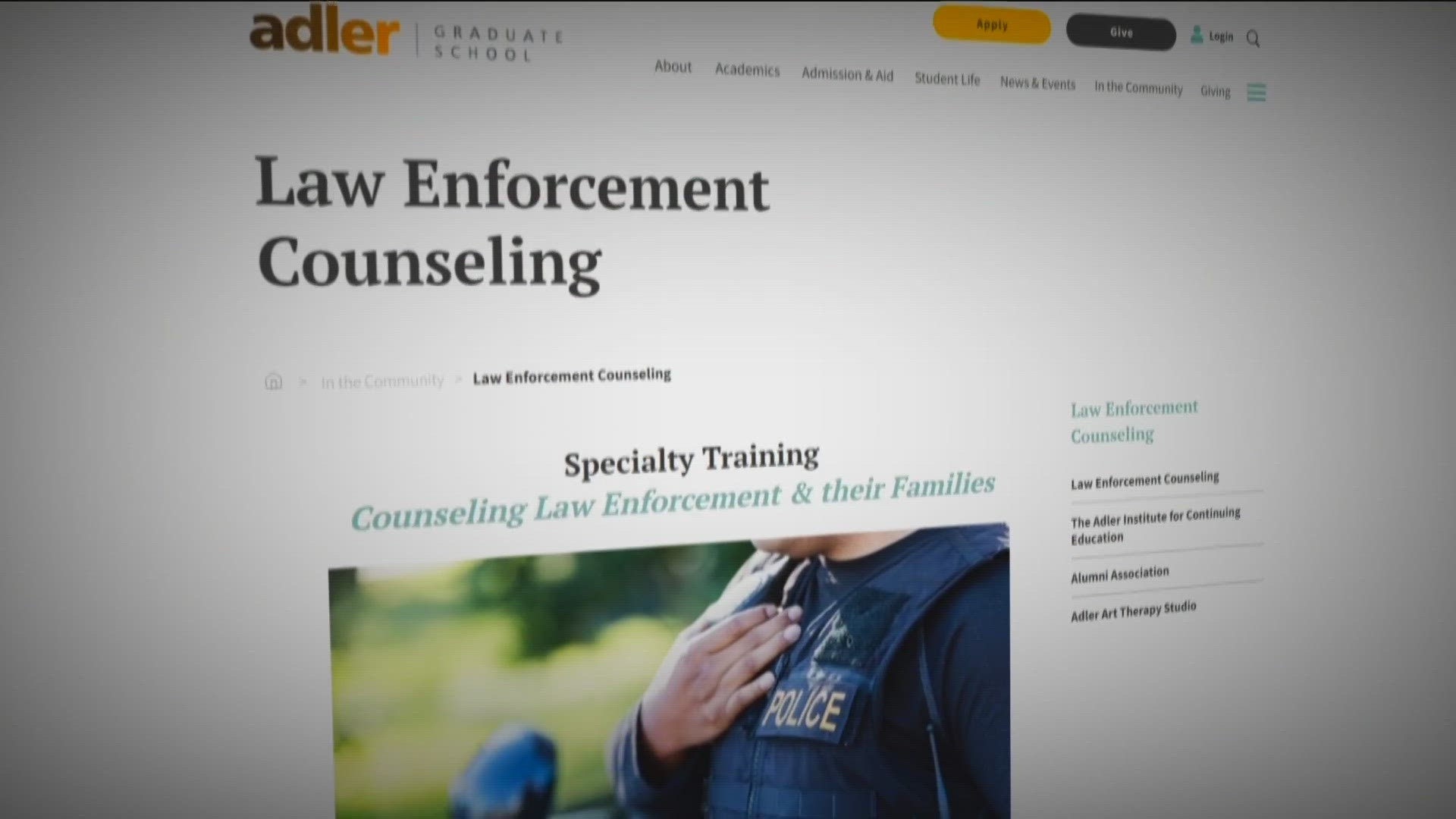MINNETONKA, Minn. — Several stand off situations in the Twin Cities metro put several communities on edge this past weekend, perhaps none more so than the law enforcement community that responded to them.
The past year has been marked by several deadly shootings of officers throughout the region, and assaults on police officers have increased more broadly in the past several years. Add in the stress associated with staffing issues found in many departments throughout the state and experts say the concerns are clear.
"You have 'big T' trauma and 'small t' trauma and they have both been piling up," said Solange Ribeiro, President of Adler Graduate School in Minnetonka. "It's a Catch-22 right? The more they do, the harder it is to do it well."
Solange Ribeiro is President of Adler Graduate School in Minnetonka, which has spent several years working to address the mental health concerns voiced by police departments, by advocating for more specialized training to those counseling law enforcement and their families.
"This whole thing started at the time of George Floyd's murder," Ribeiro said. "Even in our presentation (to the legislature) we had police chiefs who came to argue for the need of the program."
That testimony eventually led the Minnesota legislature to approve funding for a grant that allowed mental health professionals to obtain specialty training at a reduced cost.
"We want as many people out in the community as possible that can offer assistance," said Tom Watson, an associate professor for Adler, which oversees the training program.
Tom Watson: "To get them to have a little bit more of an understanding of what is it like emotionally, what is it like physically, for those individuals who are risking their lives running toward that danger, while everyone else is running away from it."
Erdahl: "Who can complete that training and who is taking that training right now?"
Watson: "They are all licensed professionals who have done work in the field. Some of the attendees are spouses of law enforcement officers, some of them are currently working with law enforcement officers."
Erdahl: "What has the demand been like for those looking to get the training?"
Ribeiro: "Oh my goodness, in our grant budget, I put in a certain amount of money for marketing. What marketing? We were full within 24 hours of sending the card saying we are going to offer this."
Erdahl: "What does that tell you?"
Ribeiro: "It tells us two things: There are mental health professionals who want to work with law enforcement and who are seeing the need."
Speaking of that need, following the deadly shooting of two officers and a firefighter during a SWAT call in Burnsville in February, they are looking ways to deploy that support even faster.
"We are already receiving requests for individuals who have completed the program," said Watson.
"When something like this happens, a tragedy like this happens it impacts the entire community."
About 20 licensed professionals have completed the training so far, but another 35 are mid-way through the second of six cycles to come. Because of the demand for help now, Adler is beginning to connect departments with the resources available in real time.
"It's the old cliché but it's true, that we all do better when we all do better," Ribeiro said. "By taking care of our peace officers, we are really promoting public safety."
Watch more Breaking The News:
Watch all of the latest stories from Breaking The News in our YouTube playlist:

